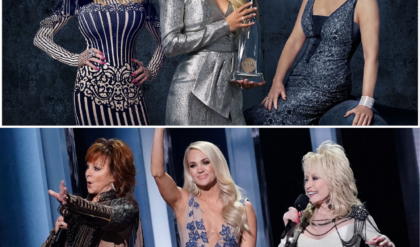After the word “Shiksa” was used in Nobody Wants This, audiences may be curious about what that word actually means.

The word “Shiksa” came up in the new series Nobody Wants This, leading many to wonder what that word actually means.
The word first appears in the first episode of the new Netflix series starring Kristen Bell and is also in the second episode’s title.
According to Deadline, Shiksa was actually the show’s original working title prior to Netflix finalizing Nobody Wants This as the series’ official name.
“Shiksa” Meaning in Nobody Wants This
 Netflix
Netflix
“Shiksa” is a word used primarily used by Jewish people to describe non-Jewish women and girls. It is not always used as an insult, but it often can be one — whether outright or in connotation.
Merriam Webster describes the term as “often disparaging,” and many Jewish people choose not to use it.
Its negative connotations when used as an insult can vary depending on context, sometimes insinuating that the woman is particularly attractive, tempting Jewish men away from their religion, other times meant to alienate the woman in question.
This is how it is first used in Nobody Wants This — Tovah Feldshuh’s Bina Roklov refers to Kristen Bell’s Joanne with the term in anger and judgment, looking down on her Rabbi looking lovingly at a non-Jewish woman.
The word’s origins also lean into this more negative connotation, stemming from Hebrew and Yiddish words for varying insults such as “abomination” or “blemish.”
However, in how it is used today, it is not always necessarily meant as an insult — though it could still come across that way. For instance, it is likely that many intend to use the common term “Shiksa Goddess” (connoting an alluring, beautiful non-Jewish woman) as a compliment.
However, many women may still find that objectifying or misogynistic, regardless of intention.
“Shiksa” Can Mean Different Things in Different Contexts
Depending on how it is used, and how the woman being described feels about the term, it could be used as a compliment, a joke, or an ironic term of endearment.
The best example of some of its less negative connotations can be found in the song “Shiksa Goddess” from the musical The Last Five Years by Jason Robert Brown. The word is repeatedly used by the character Jamie to describe his non-Jewish, then-girlfriend Cathy throughout the song’s titular refrain:
“I’d say, ‘Hey! Hey! Shiksa goddess!
I’ve been waiting for someone like you.”
It is clear based on the lyrics that if Jamie’s mother were to be the one to use it, it would be an insult:
“I’m breaking my mother’s heart
The longer I stand looking at you
The more I hear it splinter and crack
From 90 miles away”
Meanwhile, Jamie also continuously uses it to say that he (at this point in the story) loves Cathy so much that not only is he excited by the prospect of dating outside of the Jewish community, not only does he take rebellious pleasure in pursuing what his family would not want for him, but also to imply that Cathy is more important to him than his religion:
“I’ve been wandering through the desert
I’ve been beaten, I’ve been hit
My people have suffered for thousands of years
And I don’t give a shit!”
Still, this is one person using the term in one specific context — not every use of the word is the same, and there are strong negative connotations to the word. Again, Nobody Wants This demonstrates using this word in a more derogatory fashion.
Many avoid it entirely because of that, or maybe simply because they do not feel there needs to be a term that just alienates someone from what should be — and often is — a welcoming religious community.
Nobody Wants This is available to stream on Netflix.





